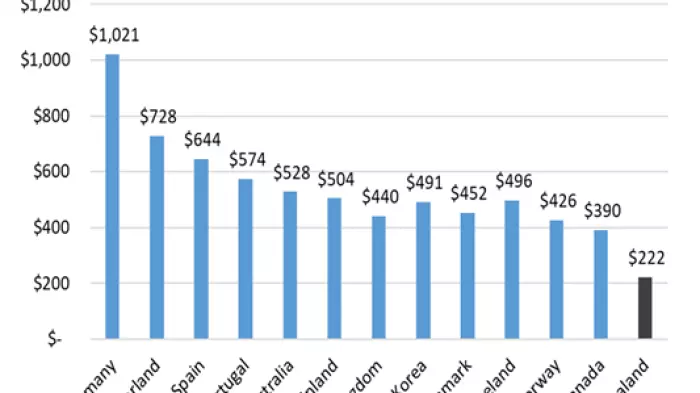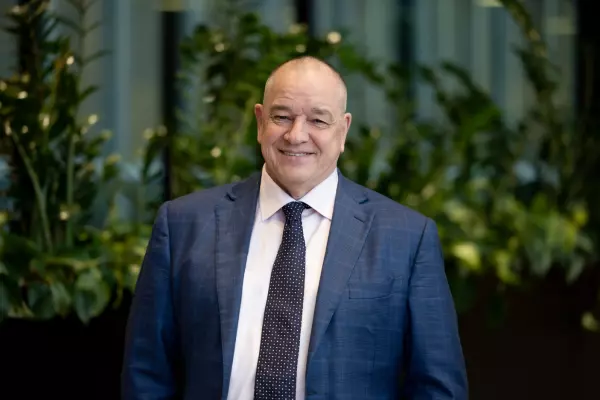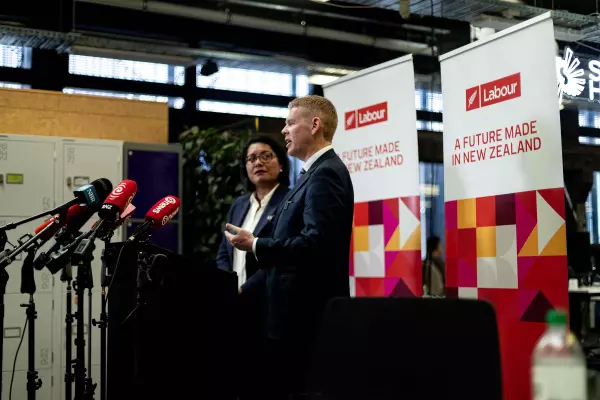BusinessDesk investments editor Frances Cook responds to emails from readers each week, answering questions about money. Below, you will find her expert advice. Send your questions to [email protected].
Hi Frances,
I've been a fan of your content for some time now. Just wanted to see if you can give me some advice considering my situation.
I have signed a sale and purchase agreement for a property, but the settlement will be in January. My mortgage person from the bank said we will have to wait until mid-November to lock in the rates but will have to pay an additional fee of around $500 if we want to lock in the rates before mid-November.
Do you think there's a high chance of banks increasing or decreasing the rates before mid-November?
Sorry about the long message,
D.
Hi D,
Let me say upfront: if anyone could predict this with true accuracy, they wouldn’t be working for a business website. They'd be rich, retired and loving it.
However, there are some factors that make me think mortgage rates aren’t likely to move much between now and November. Either up or down.
The latest inflation figures were better than expected, at 5.6%. Yes, that does mean prices are still going up, but it’s by less than before and hopefully a sign they’ll keep on dropping.
The reason interest rates have been going up is to try to combat that high inflation.
Basically, the Reserve Bank of New Zealand increases the official cash rate (OCR), which makes it more expensive to have credit card debt, a mortgage, or a business loan.
So, because debt is more expensive, people find life more expensive, they stop spending as much, and lower demand means prices fall. That’s the theory they’re working on, anyway.
It does work, but it takes a while.
So, now that inflation is falling, the Reserve Bank is likely to see that as a success. It means we’re less likely to see interest rates go up again.
The flip side is that inflation still needs to come down a bit more, so they probably won’t put interest rates back down again for a while, either.
The overseas money markets can have an impact, and they're all dealing with high inflation, too.
Oil prices are running high, which could have an impact on inflation in the future.
So, all signs point to interest rates staying where they are, at least for the next few months.
I also contacted two mortgage advisers I know to ask about possible strategies to help you manage any risk of further interest rate increases.
Will Tieu from Goldsmith Mortgages
We've recently seen swap rates come down, so 'borrowing' costs might stabilise a little bit. However, interest rates are so volatile now, especially with global conflicts, oil, US politics, a slowdown in China and recent election results.
Recent inflation data is trending down, which shows that interest rates held by the Reserve Bank are doing their job. Inflation is still high, but the Reserve Bank hasn't moved its official cash rate from 5.50%, and the next OCR announcement is on November 29. Economists are forecasting that it may continue to hold at 5.50%.
Most fixed-price interest rates have already been priced in.
In summary, no one knows what will happen in the future, and the best way forward is to hedge your risk.
Look at your mortgage structure. I'm seeing more clients fixing for between 18 and 24 months.
If it's a new home loan, then 95% of my clients will be splitting their loans into halves, thirds or a mix of floating and fixed rates.
This is where a mortgage adviser can guide you because the structure heavily depends on the risk appetite of the client, their spending habits and budget.
I hope we'll see no more interest rate rises, and all things seem to be pointing in the right direction of rates holding for now.
Brett Davies from MortgageLab
This question is difficult to answer as we can only speculate on what future rates will do.
They have been rising incrementally for a while, so it feels unlikely that rates will fall over the next month or so, but there is a possibility of further increases.
I, personally, would wait out the next four weeks and lock in your rates in November. Most banks allow you to lock in rates 60 days out from the settlement date, as in this case.
More importantly, the consideration for any mortgage holder is the structure, which should be based on a number of factors and mostly on risk.
Splitting the lending into two or three different fixed terms will reduce the shock of interest costs if rates continue to rise in the future because only a portion of the lending is being refixed at any given time.
This type of structure is designed on the assumption of future rates being higher, but it's a more manageable and safer way to look at things with a long-term view of the overall mortgage term.
Send questions to [email protected] if you want to be featured in the column. Emails should be about 200 words, and we won't publish your name. Unfortunately, Frances is not able to respond to every email received or offer individual financial advice.
Information in this column is general in nature and should not be taken as individual financial advice. Frances Cook and BusinessDesk are not responsible for any loss a reader may suffer.














